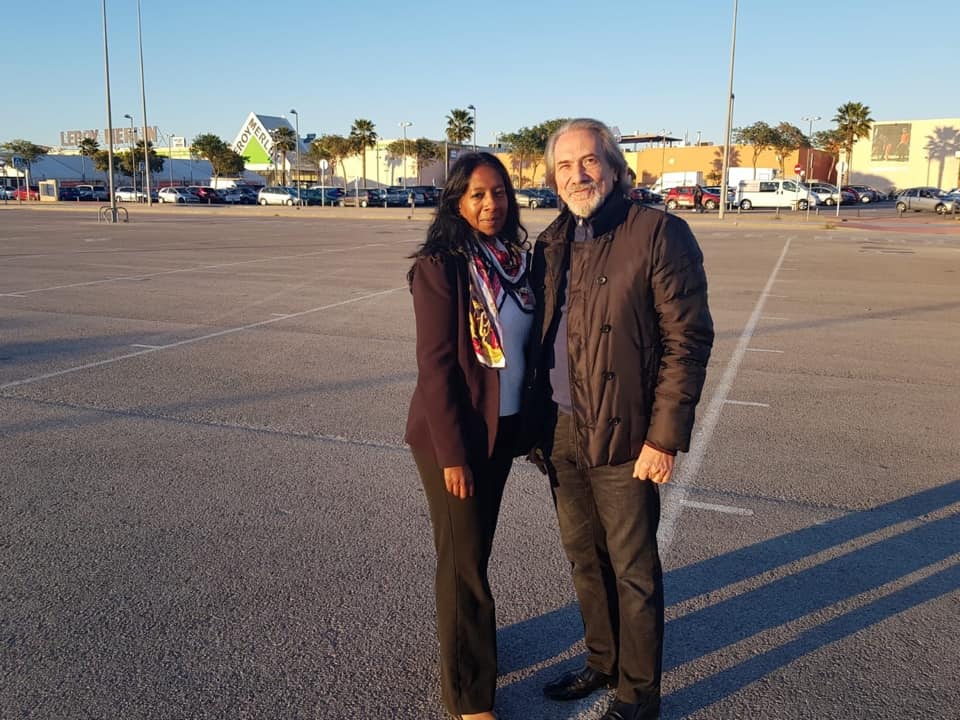Sunday, 26 May, the date of the Orihuela municipal elections, marks another chapter in Orihuela Costa’s struggle for identity.
Voters on the coast, including the British who maintain their right to vote, at least one more time, will have a chance to say what kind of Orihuela Costa they wish to live in.
The outcome of the elections will probably be close but the march towards a distinct identity for Orihuela Costa should take a further step forward.
The struggle for identity began 12 years ago, in 2007, when the local political party C.L.A.R.O. contested the municipal elections for the first time.
The party discovered that although the population was growing and was no longer a place for second home owners just seeking sun and beaches, they were effectively disenfranchised. Orihuela Costa residents, mainly British at that time, had no official addresses to which voting cards could be sent.
Consequently over 10,000 voting cards were returned undelivered making voting difficult.
Despite this huge obstacle, C.L.A.R.O. did well, obtaining half the votes cast. Their first action after the election was to prepare to take the Town Hall to the court of the European Parliament for violation of democratic rights. The threat was sufficient to oblige the Town Hall to provide proper street names and house numbers. The struggle for identity had begun.
Two further elections followed in 2011 and 2015. In 2011 C.L.A.R.O. entered a coalition with the then CLR party and together with two other parties they ended the political monopoly of the Popular Party. A C.L.A.R.O. councillor became the first non-Spanish Councillor for the Coast. C.L.A.R.O. hoped this would ensure an end to discrimination, better service and civic facilities in return for the ever increasing revenue generated by the expanding Orihuela Costa. However the CLR-C.L.A.R.O. Coalition ended badly with the C.L.A.R.O. Councillor leaving the government.
If this was a setback in the struggle for identity, the 2015 election result could be considered a backward step. The post of Councillor for the Coast was abolished by the Popular Party Mayor, supported by Ciudadanos, formerly CLR with a different label but same content.
The two parties became coalition partners and have governed Orihuela until today. There have been no significant improvements in Orihuela Costa in this time.
However, the prelude to the elections on 26 May suggest that the struggle for identity has recovered momentum. A strong Federation of Neighbourhood Associations (FAOC), as well as individualAssociations like the La Zenia Citizens Movement, have emerged as effective, non-political voice(S) demanding better services and investments for the coast.
A Citizens Movement (Agrupacion) was initiated among the Spanish population which has been significantly boosted in number thanks to employment opportunities created by La Zenia Boulevard. They too want value for their tax money and the same improvements demanded by C.L.A.R.O. and FAOC.
They will not contest the election this time. Associations like the Parent Teachers (AMPA) have also been vocal in demanding an end to container classrooms and denouncing pot-holed streets dangerous for cars and pedestrians. Even the outgoing Popular Party Councillor, Sofia Alvarez, has joined the struggle, championing the creation of “Local Autonomy“ and a fair share of expenditure for Orihuela Costa.
C.L.A.R.O has joined a Coalition which stands for a de-centralised government, also a form of local autonomy which would ensure a proper return in the form of basic services and municipal facilities for the taxes paid by coastal residents. Their leading candidate, Helene Akerman, stands a very good chance of being elected.
If voters rise to the occasion, there is every hope that this election will see Orihuela Costa make a major step forward in asserting its identity within the municipality of Orihuela. This could bring about the long awaited, fairer share of municipal services and facilities. The still strong British population of voters could have a decisive say in the outcome.
Despite the distractions of Brexit, they have every interest in exercising their right to vote: to assert their presence, their wish to maintain existing rights and benefits and to live in a more just municipality in which they have a voice.






I think that CLARO joining with CAMBIEMOS for these elections could bring about real change. What is a danger is expats not bothering to vote because they don’t see any point. There’s every point. Get out and vote. Turn up at the polling station with proof of address and identification. You can vote if you are on the padron.